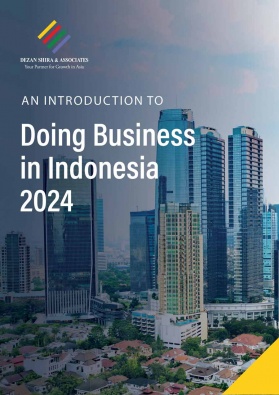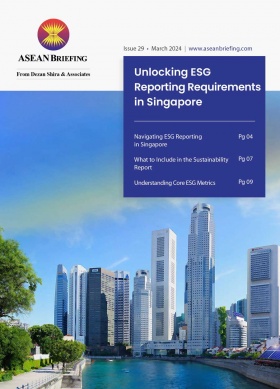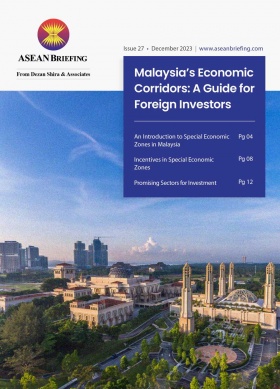Singapore’s Business Future: Lawrence Wong at the Helm
Lawrence Wong has been appointed Singapore’s fourth Prime Minister, marking the city-state’s first leadership change in two decades. After decades of phenomenal development, the new Prime Minister faces many challenges, including a declining birthrate, rising living costs, and potential business disruptions from technological advances like artificial intelligence.
A former bureaucrat, Lawrence Wong entered politics in 2011 and gained recognition for leading the government’s response to the COVID-19 pandemic. Following his successful efforts, Wong was chosen from the “fourth generation” of politicians in the ruling People’s Action Party (PAP) to become Singapore’s next Prime Minister.
Singapore, known for its amicable relations with the US and China, is also navigating an increasingly tense geopolitical landscape in the Asia-Pacific region due to the growing rivalry between these superpowers. As such, considering these heightened risks, the new Prime Minister is expected to stay on the same track and expand the policies he inherited.
Further, Singapore’s enduring appeal to investors and its long-standing reputation for a business-friendly environment is expected to ensure a steady flow of trade and foreign direct investments.
Singapore’s challenges
The economy and the rising cost of living
For decades, Singapore was touted as one of the most open and globalized economies in the world as the country looked to compensate for its lack of natural resources and its small territory.
Singapore has confirmed its economic growth projections 2024, maintaining a cautiously optimistic outlook amidst global uncertainties. Despite the modest growth of 1.1 percent recorded in 2023, the Ministry of Trade and Industry (MTI) upheld its growth forecast range for 2024, set between 1 and 3 percent. This decision reflects the country’s resilience in an increasingly uncertain global environment.
The Monetary Authority of Singapore (MAS) recorded core inflation of 3.6 percent in February, higher than the forecasted 2.5-3.5 percent range. MAS expects price gains to stay elevated throughout early 2024 before falling in 2025.
Singapore’s central bank has allowed the local dollar to appreciate and thus help blunt imported inflation. However, this has also negatively impacted the country’s export competitiveness, particularly since exports are the lifeline of the country’s economy.According to the Economist Intelligence Unit’s (EIU) Worldwide Cost of Living 2023 report, the cities of Singapore and Zurich were named the most expensive to reside in.
A declining birthrate
Singapore’s fertility rate has fallen below 1.0 to 0.97 in 2023, declining further from 1.04 in 2022 to 1.12 in 2021. The fertility rate is significantly below the replacement level of 2.1, the rate necessary for a population to sustain itself from one generation to the next.
Citizens aged 65 and above now constitute nearly one-fifth of the population, marking an increase of 11.7 percent from a decade ago, according to the government’s 2023 population report. This proportion is also growing at a faster pace compared to the previous decade, and it is projected to reach approximately 1 in 4 citizens by 2030, according to government estimates.
This can have serious implications on Singapore’s future as can be seen in the case of South Korea and Italy which are grappling with economic slowdowns and decreasing wages that are compounded by low birth rates.
Competition as a trading and financial hub
Singapore remains the premier trading and financial hub for Southeast Asia. However, multinational corporations are increasingly relocating their Southeast Asian regional headquarters from Singapore to other countries in the region to cut costs and explore new growth opportunities.
Malaysia’s fiscal 2024 budget includes ‘global service hub’ tax incentives to attract regional headquarters, offering preferential income tax rates of 5 to 10 percent for up to a decade. Thailand is also a top contender for hosting regional headquarters, often chosen alongside plans to expand production and sales. For instance, Nissin Foods Holdings relocated its Southeast Asian headquarters from Singapore to Thailand in 2020. The Thai government is actively courting multinationals with similar tax incentives.
A poll released this March by the Japan External Trade Organization revealed that 31% of Japanese companies with regional headquarters in Singapore had either partially relocated their functions to another country or were considering doing so.
What continues to make Singapore attractive for foreign investors?
Despite the trend of multinational corporations relocating some regional headquarters functions, Singapore remains highly attractive to foreign investors.
Political stability
A cornerstone of its attractiveness is its political stability. The city-state is renowned for its secure and predictable political landscape, which provides a dependable foundation for long-term business planning and operations.
Strategic location in Southeast Asia
Strategically located at the crossroads of major shipping routes, Singapore serves as a vital gateway to Southeast Asia and beyond. Its geographical advantage is complemented by world-class infrastructure, including a highly efficient port and one of the world’s leading international airports.
Business-friendly environment
The business-friendly environment in Singapore is another key factor that attracts foreign investors. The country consistently ranks high in global ease of doing business indices due to its transparent regulatory framework, low levels of corruption, and efficient bureaucracy.
Skilled workforce
Singapore also boasts a highly skilled and educated workforce, supported by strong educational institutions and continuous professional development programs.
Comprehensive trade agreements
Singapore’s comprehensive network of free trade agreements (FTAs) and economic partnerships facilitates international trade and investment. The country’s 15 bilateral, 12 regional FTAs, and digital economy agreements (DEAs) include some of the largest combined trade agreements in the ASEAN-China, ASEAN-India, and ASEAN-Hong Kong trade blocs—providing Singapore-based businesses with access to preferential markets, free or reduced import tariffs, as well as enhanced intellectual property regulations.
Robust financial sector
Singapore provides unparalleled access to a wide range of banking, investment, and financial services as a global financial hub. Its robust financial sector is characterized by a high degree of regulation and stability, offering businesses confidence in financial dealings.
About Us
ASEAN Briefing is produced by Dezan Shira & Associates. The firm assists foreign investors throughout Asia and maintains offices throughout ASEAN, including in Singapore, Hanoi, Ho Chi Minh City, and Da Nang in Vietnam, in addition to Jakarta, in Indonesia. We also have partner firms in Malaysia, the Philippines, and Thailand as well as our practices in China and India. Please contact us at asean@dezshira.com or visit our website at www.dezshira.com.
- Previous Article Google to Invest US$2 Billion in Malaysia’s Data Center and Cloud Market
- Next Article China’s Investments in Indonesia: 2024 Outlook








